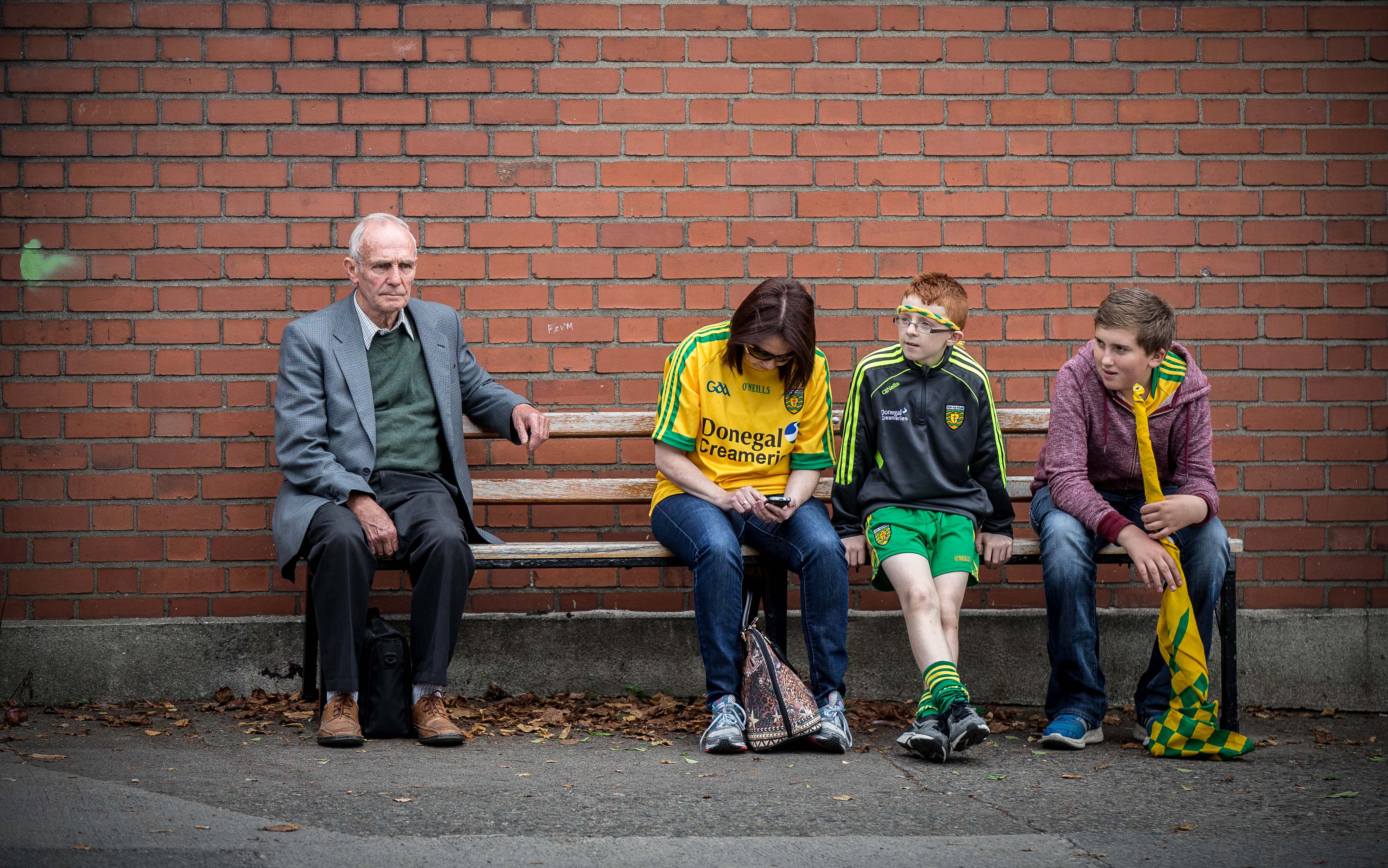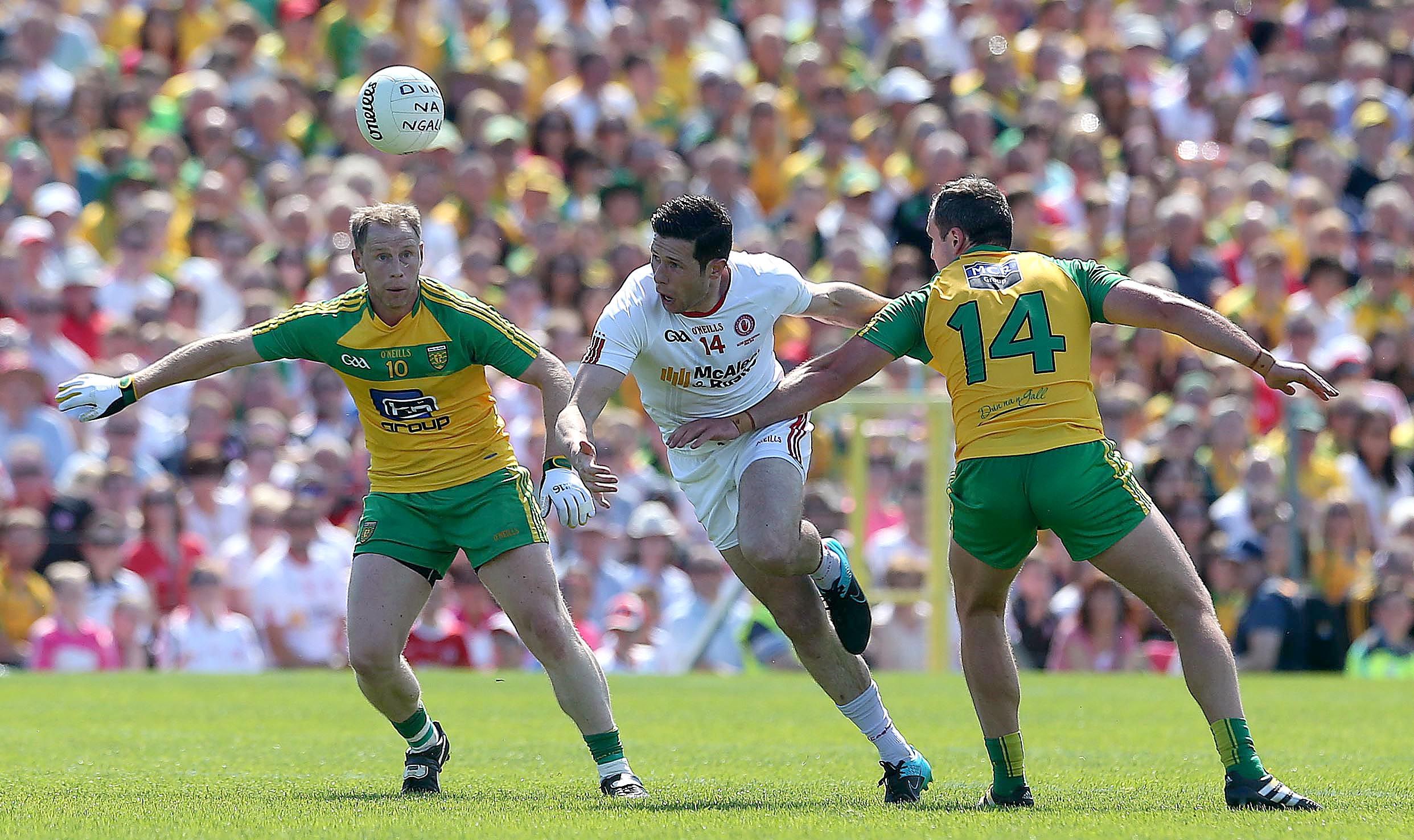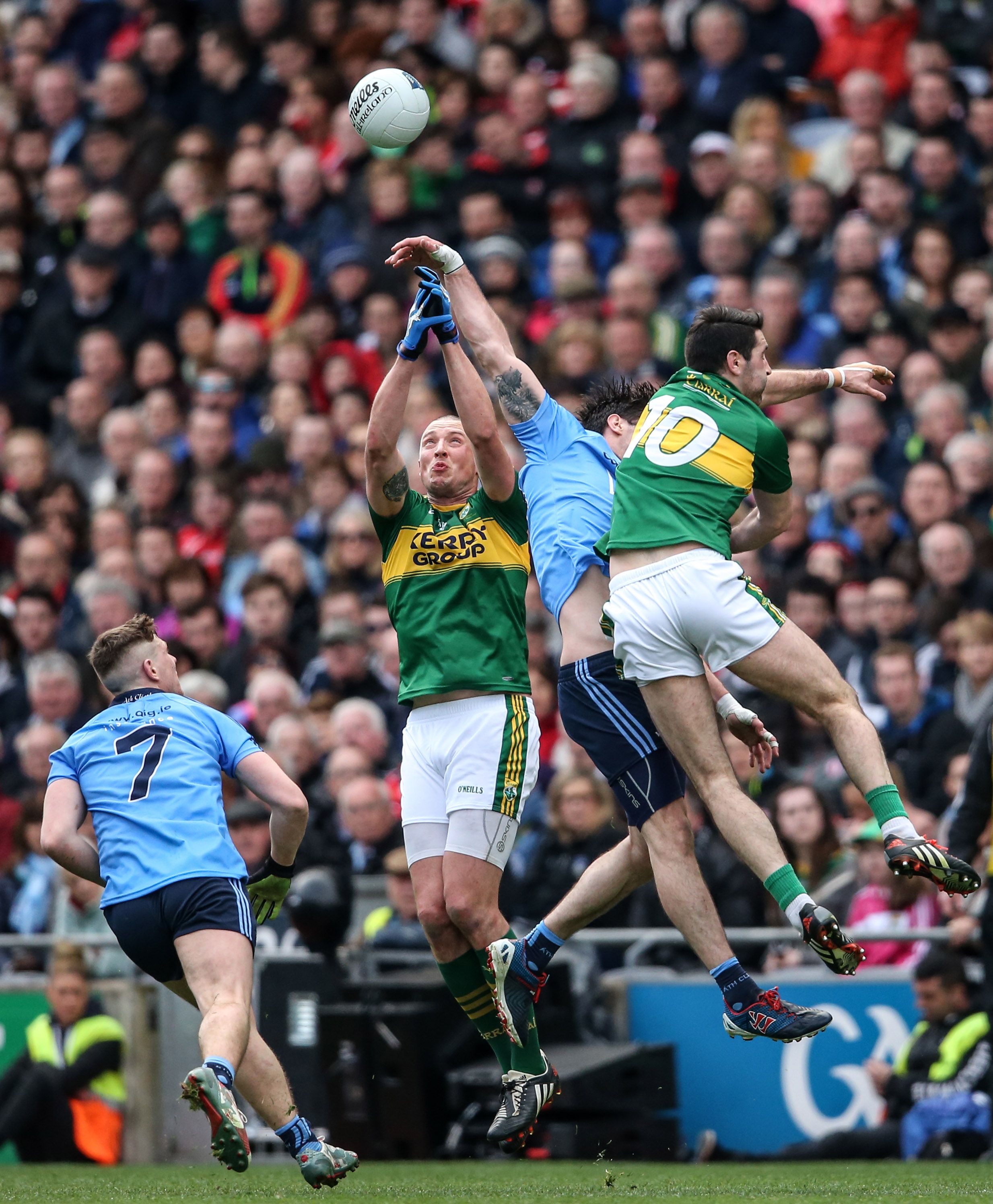“Dwindling attendances; boring contests like soccer where we have 65 minutes of stalemate, then a long-range point to win it; football so scripted the players could be following a teleprompter; a game where spontaneity and judgment are rehearsed out of highly skilled players; boredom for the players; disenchantment for Gaels.”
Another Sunday, another Joe Brolly piece in the Sunday Independent bemoaning the state of Gaelic football. Your campaign is not working Joe, managers aren’t listening to you. They’re in the business of trying to win matches.
It’s very simple: defensive tactics generally beat attacking tactics. Push up on a defensive team, get turned over and you’re wide open to the counter attack. Managers have no motivation to change because the opposition will more often than not use defensive tactics.
Tom Cribbin explained why he opted for a defensive system with Westmeath this year on the GAA Hour football show a few weeks ago.
“This year we started out with that (defensive system) because the teams we were playing used defensive systems. If they play a defensive system and you go all out to go at them you’re leaving yourself exposed and you’ve a far greater chance you’re going to be beaten.
A couple of obvious examples spring to mind. Armagh played Cavan in the Ulster championship in 2014 when Paul Grimley was their manager. They pushed up on Cavan all over the field and tried to attack. Cavan hit them on the break and beat them convincingly.
Funny enough, Joe was highly critical of Grimley’s tactics on the Sunday game later that night. “It is incumbent on the manager to set out his team,” he said. “The players are out of their depth because the manager is out of his depth.”
Even the mighty Dubs were humbled with their all-out attacking tactics against Donegal the same year. They left their full back line exposed, pushed up all over the field and got killed on the break. They were a much better team on paper but were humiliated.
Donegal won the All Ireland in 2012 because every team they played got caught on the counter attack. They all played into Donegal’s hands. Despite a late comeback Kerry were well beaten in the quarter final that year. Fast forward two years later and Kerry played Donegal at their own game and beat them in a forgettable All Ireland final.
Unfortunately the only way to beat defensive teams is to somewhat mirror what they do.
Yes the game will be a dull, boring affair but, like I said, inter-county managers are in the business of winning matches. As long as there are defensive teams out there, managers with attacking philosophies will have no choice but to change their tactics. Just ask Jim Gavin and Eamon Fitzmaurice.
I’m a big soccer fan, but the great thing about Gaelic football is that it’s nothing like soccer.
Ever wonder why there are no songs sung at GAA matches like there are in soccer? Because usually there is too much happening on the field supporters don’t have time. That could change, of course. During the Ulster final this year the supporters could have sung ‘The Hills of Donegal’ three times over and still missed nothing.
Joe Brolly has a point but he’s going about it the wrong way. Instead of complaining about defensive systems and getting nowhere, why not suggest something that might help?
I agree because I suggested something similar on Allianz Leagues extra a year before Jim thought of it.
Here's Point 2 of @Woolberto's 3 Point Plan to stop blanket defence's in football.#AllianzLeaguesExtra https://t.co/GkkLasBSLh
— AllianzLeagues Extra (@GAAonSetanta) March 11, 2015
The other suggestion I made on that show is the introduction of an offensive mark. I really believe this would improve the game as a spectacle. It would encourage kicking, catching and reduce the need for multiple sweepers in defence. It would bring a more traditional shape back to the game.
The offensive mark would work like this. Any kick from outside the 45 that is caught cleanly anywhere inside the 21 is a mark and a free shot at goal. Under the current rules there is no benefit for the likes of Kieran Donaghy, Aidan O’Shea or Michael Murphy to catch a ball close to goals because usually he will be surrounded and dispossessed. When these big men are played inside they are underused because it’s easier to just play the ball through the hands.
If the offensive mark was introduced we would see a big man on the edge of the square on most teams and more long balls kicked in. Imagine the anticipation as Donaghy goes up for the catch with his marker. If he catches it he gets a free kick at goal.
An important knock-on effect is that teams will have to push out. They would need to put pressure on the kicker because a good diagonal ball is easy to catch. Sweepers would become useless if the kick is caught. We don’t see sweepers in Aussie rules.
A mark all over the field would slow the game down too much but I don’t believe this offensive mark would. When a ball is caught under the current rules a ruck of players usually develops and the referee blows for a free out. I think it would add an extra dimension to the game, increase excitement and actually speed the game up.
Rugby changes its rules all the time. They are constantly updating their rules surrounding the scrum to make the game more watchable for supporters. This year they introduced new rules relating to simulation.
They don’t mess around – the rules are introduced no-one bats an eyelid. We’re so opposed to change within the GAA it’s tiresome.
Unlike Joe, I’m happy enough with the game. Like I said in a previous column the trend is moving back towards attacking football again. It will be a slow burner though and the offensive mark would speed that process up a little bit. We need to do it quickly before soccer-style songs and, God forbid, Mexican waves become a feature in Croke Park.


















































